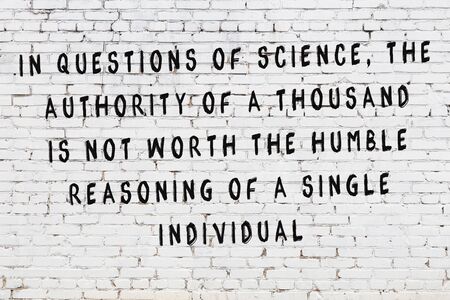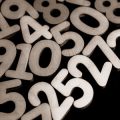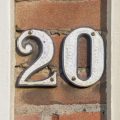1. Introduction: Names, Numbers, and the British Sense of Self
Names in Britain are more than mere identifiers; they are woven into the very fabric of personal and collective identity. From the dignified lineage of royal titles to the affectionate nicknames passed through generations, each name carries echoes of history, tradition, and social nuance. Layered within this landscape is the ancient art of numerology, a practice that assigns symbolic meaning to names through numbers. In British culture—renowned for its subtlety, reserve, and depth—name numerology offers a unique lens through which individuals may understand themselves and their place in society. This interplay between names and numbers is not just an esoteric curiosity but resonates with the enduring British quest for self-understanding, order, and meaning. As we embark on this exploration, we consider how the alchemy of names and numbers reflects the multifaceted character of British identity—rooted in heritage yet ever open to interpretation.
2. The Historical Roots of Name Numerology in the UK
The art and science of numerology, though often associated with mystical traditions from the East or the ancient Mediterranean, has quietly woven its way through the fabric of British history. Tracing back to early Celtic societies, numbers held an esteemed place in storytelling, spiritual beliefs, and personal identity. The Druids, for instance, revered certain numbers as sacred, using them not only in rituals but also in the structure of names and lineage titles. As Christianity spread across the British Isles, numerical symbolism found new life; biblical references to numbers—such as seven for perfection or twelve for completeness—gained prominence in local culture and naming conventions.
During the Middle Ages, the influence of Pythagorean thought arrived via continental scholars and mingled with native traditions. The practice of assigning numeric values to letters—a cornerstone of modern name numerology—took subtle root among both learned clerics and the lay population. This integration can be seen in surnames that echo historical events, occupations, or virtues, each carrying a resonance shaped by centuries of both superstition and scholarly pursuit.
The Integration into Local Customs
Name numerology’s journey through the British Isles was marked not by overt ritual but by a quiet embedding within everyday life. Names were chosen not just for their sound or family significance but sometimes for their perceived luck or harmonious numerical value. Over time, this consideration found its way into customs surrounding christenings, inheritance laws, and even royal lineage.
Examples of Numerological Influence in British Naming Traditions
| Name Element | Numerical Value (Pythagorean) | Cultural Significance |
|---|---|---|
| Arthur | 1+9+2+8+3+9 = 32 (5) | Symbol of leadership; associated with legendary kingship |
| Elizabeth | 5+3+9+9+2+1+2+8 = 39 (3) | Linked to harmony and tradition; favoured by royalty |
| George | 7+5+6+9+7+5 = 39 (3) | Represents protection; popular among monarchs |
A Legacy Continued
This subtle yet enduring relationship between names and numbers continues to shape British identity. From medieval scrolls to modern-day birth certificates, numerological considerations persist—not always at the forefront, but ever-present in the undercurrents of tradition and heritage.
![]()
3. Decoding Classic British Names: Numerological Interpretations
To truly understand the British identity through the lens of name numerology, one must delve into the heart of British nomenclature—those classic names that have echoed through generations. Names such as William, Elizabeth, George, and Charlotte are not only steeped in royal heritage but also harbour hidden meanings when viewed numerologically. In this uniquely British context, each letter is assigned a number based on the ancient Chaldean or Pythagorean systems, and the sum reveals personality traits, potential destinies, and subtle energies.
Traditional Names and Their Vibrations
Consider “William”, a name synonymous with British royalty and leadership. In numerology, the letters of William total to a number that exudes authority, resilience, and a sense of tradition—qualities deeply valued in British culture. Similarly, “Elizabeth” embodies elegance and strength; its numerological essence often points to diplomacy and an ability to unite, reflecting the enduring influence of Queen Elizabeth I and II.
The Nuances of Popular Modern Choices
Moving beyond tradition, modern favourites like “Oliver”, “Amelia”, “Harry”, and “Isla” have surged in popularity across the UK. Analysing these through numerology offers fresh insight: “Oliver”, for instance, typically resonates with creativity and adaptability—traits prized in contemporary Britain’s dynamic landscape. The number patterns inherent in these names subtly shape perceptions and expectations within families and communities.
Regional Influences on Name Selection
It is important to note regional variations as well. Scottish names such as “Ewan” or Welsh names like “Carys” carry their own numerological signatures, intertwining local heritage with personal destiny. These choices reflect not only familial pride but also an appreciation for the distinct cultural threads woven throughout the United Kingdom.
By decoding these classic and popular British names through numerology, we uncover layers of meaning that go far beyond mere labels. Each name carries with it the resonance of history, character, and hope—contributing quietly yet profoundly to what it means to be British in an ever-evolving world.
4. Cultural Nuances: How British Values Shape Name Choices
When exploring the intricate relationship between British identity and name numerology, it is essential to consider how deeply embedded cultural values influence both the process of naming and the interpretation of these names through numerological analysis. The British Isles have long been associated with virtues such as stoicism, wit, and a profound reverence for tradition. These characteristics, shaped by centuries of history and social evolution, subtly guide the choices parents make when selecting names for their children, as well as the meanings they ascribe to these names.
British Virtues Reflected in Naming Traditions
The preference for certain names often mirrors collective ideals. For example, classic names like George, Elizabeth, or Arthur are not simply popular due to royal associations; they also evoke a sense of resilience, continuity, and dignity—qualities highly prized in British culture. When these names are analysed through numerology, the resulting numbers frequently align with traits such as stability (number 4), leadership (number 1), or compassion (number 6), further reinforcing their appeal within a traditional framework.
Numerological Significance of Common British Names
| Name | Cultural Virtue | Numerological Value | Interpretation |
|---|---|---|---|
| George | Stoicism | 7 | Analytical, spiritual depth, reserved strength |
| Elizabeth | Tradition | 6 | Nurturing, responsibility, harmony |
| Arthur | Leadership/Wit | 1 | Initiative, authority, originality |
| Alice | Wit/Imagination | 3 | Creativity, communication, charm |
| Victoria | Dignity/Resilience | 8 | Power, ambition, success through perseverance |
The Enduring Influence of Tradition and Modernity
The interplay between tradition and modernity is ever-present in British naming conventions. While new names occasionally enter popular use—often reflecting contemporary influences—many families continue to favour those steeped in history and literary heritage. Numerology serves as an additional layer of meaning, offering reassurance that a name resonates not only with personal or familial aspirations but also with collective British virtues.
This harmony between cultural nuance and numerical symbolism speaks to a deeper understanding: in Britain, names are seldom accidental. Instead, they are carefully chosen vessels for values that have stood the test of time—each one silently shaping identity while echoing the steadfast qualities so cherished throughout British society.
5. Contemporary Perspectives: Numerology in Modern British Society
In the vibrant tapestry of present-day Britain, name numerology continues to find its place, weaving traditional beliefs with contemporary sensibilities. While historically rooted in ancient practices, numerology has adapted to the multicultural and ever-evolving nature of modern British society. The United Kingdom today is a diverse nation, home to a rich mixture of cultures, ethnicities, and faiths, each bringing their own naming customs and interpretations to the collective identity.
As British society grows more cosmopolitan, the act of naming a child has become an occasion not just for familial tradition but also for creative expression and cultural blending. Names of various origins—English, Welsh, Scottish, Irish, as well as South Asian, African, and Eastern European—now grace birth registers across the country. Numerology thus extends beyond merely interpreting English names; it is applied to names from myriad backgrounds, adapting calculations and meanings to suit different scripts and pronunciations while seeking universal truths within numbers.
The digital age has further transformed access to numerological insights. British parents and individuals can now easily consult online calculators or engage with numerologists via social media platforms. This accessibility has encouraged a renewed curiosity about how numbers influence one’s destiny and personality traits—even if approached with a healthy dose of British scepticism. Many view numerology as a gentle guide rather than a prescriptive science, using it for reflection or affirmation rather than strict determination.
Alongside this openness, there are shifting trends in naming itself. Many British families are choosing unique or unconventional names for their children, sometimes motivated by popular culture or personal significance. This has presented new challenges for numerologists, who must interpret novel spellings or hybridised names while respecting their cultural context. As such, numerology in Britain becomes not only a tool for self-understanding but also a means of embracing individuality within the wider fabric of national identity.
Ultimately, contemporary British attitudes towards name numerology reflect the nation’s characteristic blend of tradition and innovation. Whether used as a conversation starter at dinner parties or as a thoughtful consideration during life’s milestones, numerology remains quietly woven into the story of modern Britain—bridging past wisdom with present-day diversity and aspiration.
6. Personal Reflections: Stories and Insights from Across the UK
Delving into the lived experiences of individuals across Britain reveals how name numerology is not just an abstract concept, but a journey woven through the tapestry of regional identity and personal discovery. From the rugged highlands of Scotland to the historic streets of London, people have turned to numerology to unlock hidden dimensions within their names—seeking understanding, affirmation, and at times, a renewed sense of belonging.
The Scots: Heritage and Harmony
In the north, many Scots recount stories passed down through generations about the mystical significance of names. For example, Morag from Inverness shared how calculating her Life Path number helped her appreciate her Gaelic heritage more deeply. She describes feeling a harmonious resonance between her numerological profile and the traditional values instilled by her ancestors—an alignment she believes strengthens her ties to both family and homeland.
Londoners: Diversity and Self-Discovery
Meanwhile, in cosmopolitan London, numerology has become a tool for self-discovery amid diversity. Rajesh, a second-generation British-Indian, recalls using numerology during his university years to bridge cultural gaps within his family. By interpreting both his English and Sanskrit names, he found a unique synthesis that allowed him to embrace his dual heritage with pride and confidence.
Welsh Wisdom: The Power of Tradition
In Wales, where tradition often weaves closely with daily life, Carys from Swansea recounts how learning about her Expression number inspired her to pursue a career in teaching Welsh language and literature. She felt that her numerological insights echoed the enduring spirit of her community—encouraging her to preserve linguistic heritage for future generations.
Northern Irish Narratives: Faith and Identity
For some in Northern Ireland, name numerology has been interwoven with faith. Patrick from Belfast found solace in exploring his Soul Urge number during challenging times. He shares that this introspective journey offered clarity and reassurance—helping him reconcile personal aspirations with the collective values of his close-knit community.
Regional Variations and Shared Wisdom
Though approaches may differ—shaped by local history, dialects, or even prevailing attitudes toward mysticism—the wisdom gained is universal. Britons across regions note that name numerology provides a gentle mirror: reflecting both individual uniqueness and shared cultural threads. These sincere anecdotes highlight how the ancient art continues to inspire meaningful connections between personal identity and the broader British story.
7. Conclusion: The Enduring Connection Between Names, Numbers, and British Identity
In reflecting upon the intricate relationship between names, numbers, and the enduring spirit of British identity, it becomes clear that numerology provides more than mere superstition or idle curiosity. This ancient practice, woven into the fabric of British history from Pythagoras to present-day enthusiasts, continues to offer valuable insights into the personal and collective psyche of the nation. By examining the numerological values embedded within names—be they traditional English, Celtic, or those shaped by Britain’s rich multicultural tapestry—individuals have found a unique lens through which to understand their place within society.
The British approach to numerology is often marked by a characteristic blend of scepticism and quiet fascination—a trait mirrored in much of the nation’s approach to tradition and self-discovery. It is through this gentle engagement with the mystical that Britons both honour their heritage and explore new meanings for themselves in a changing world. Whether considering the resonance of royal names or uncovering hidden aspects within local surnames, numerology remains a subtle yet persistent thread in the ongoing narrative of what it means to be British.
Ultimately, as Britain continues to evolve and redefine itself amidst global influences, name numerology serves as both anchor and compass. It anchors individuals in their ancestral roots while providing direction for self-understanding and cultural appreciation. Through this enduring connection between names and numbers, generations have been able to celebrate their uniqueness while contributing to the shared story of Britain—a story shaped by history, diversity, and the timeless quest for meaning.


